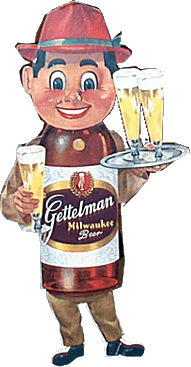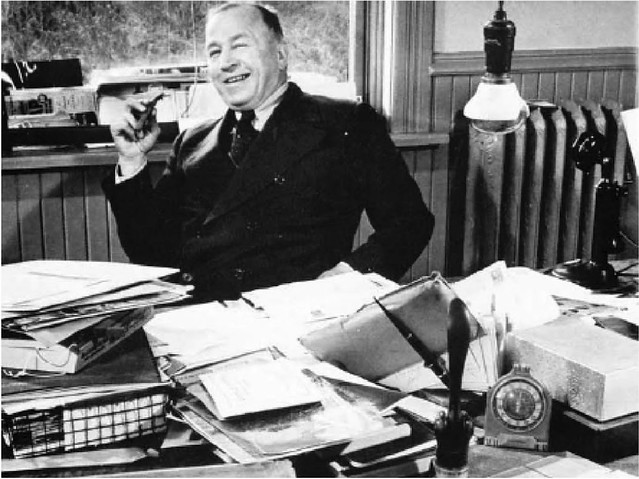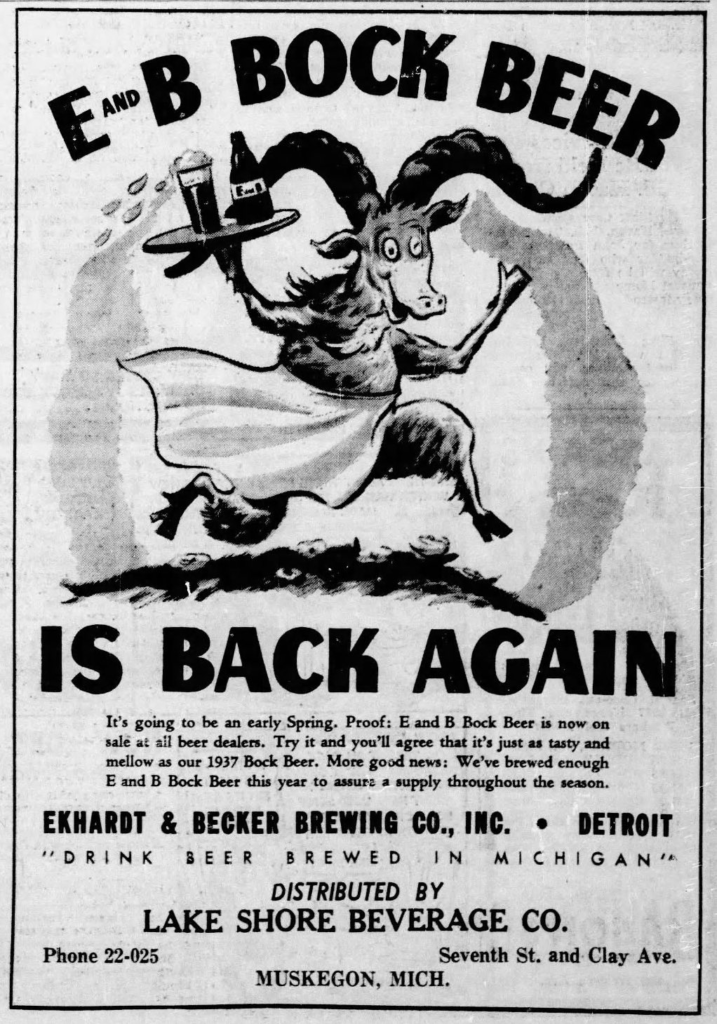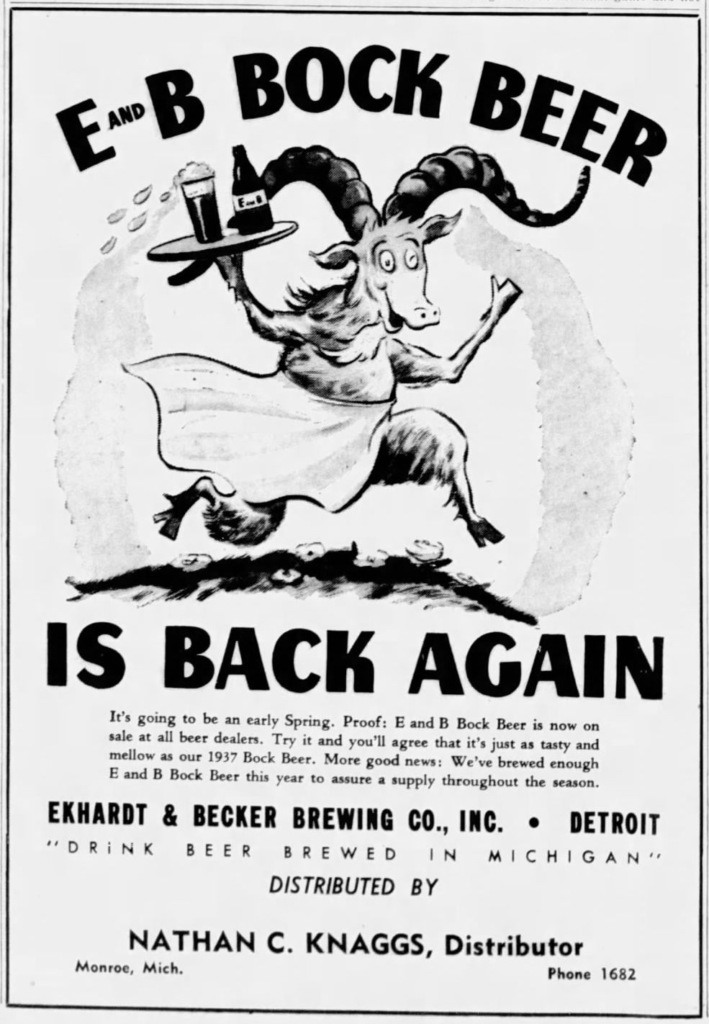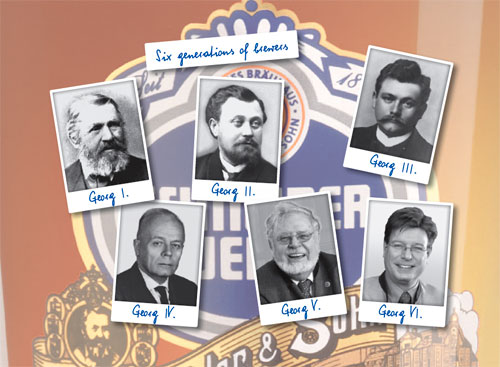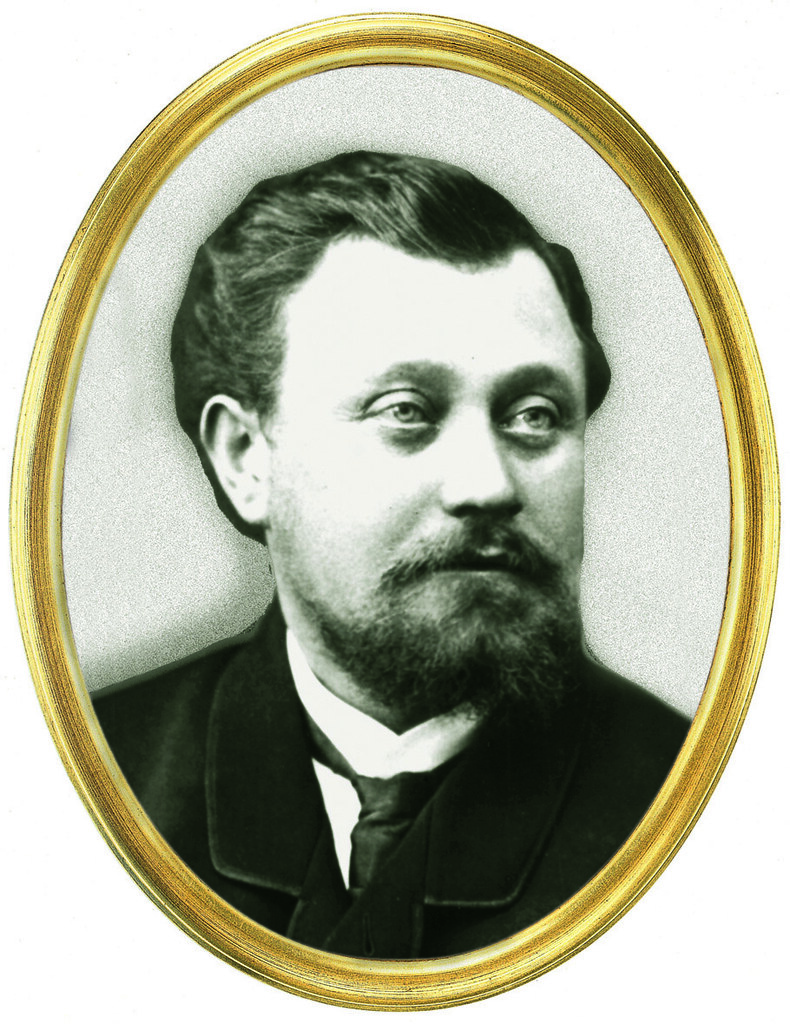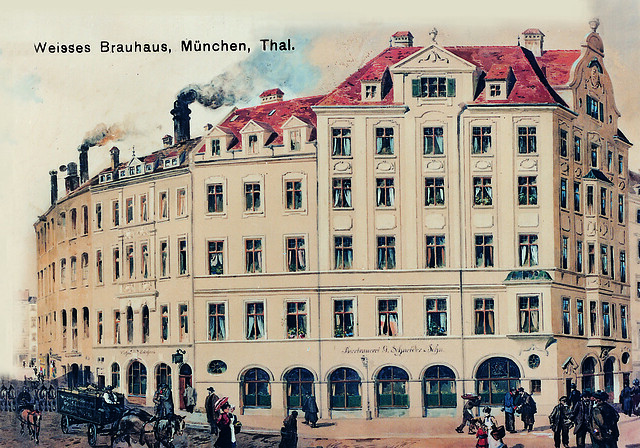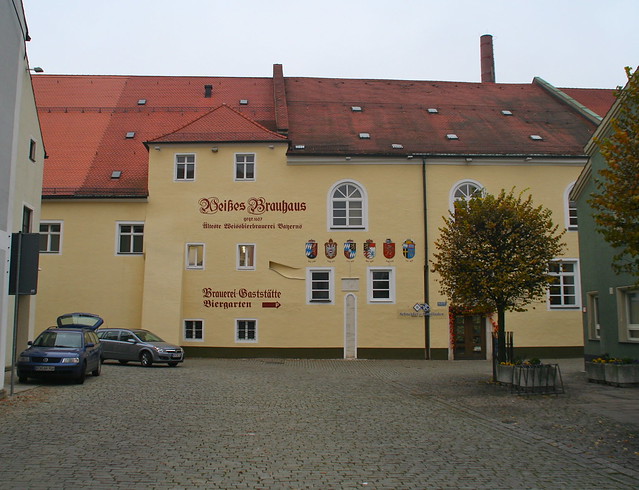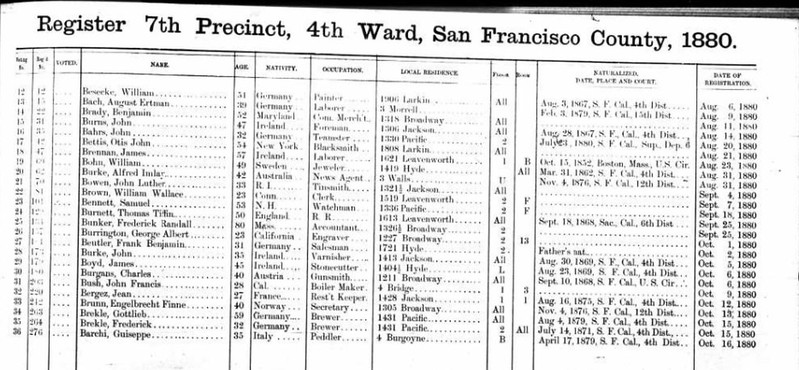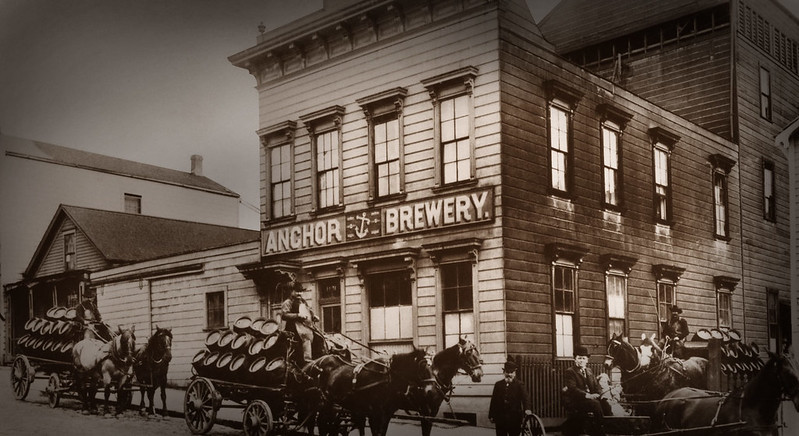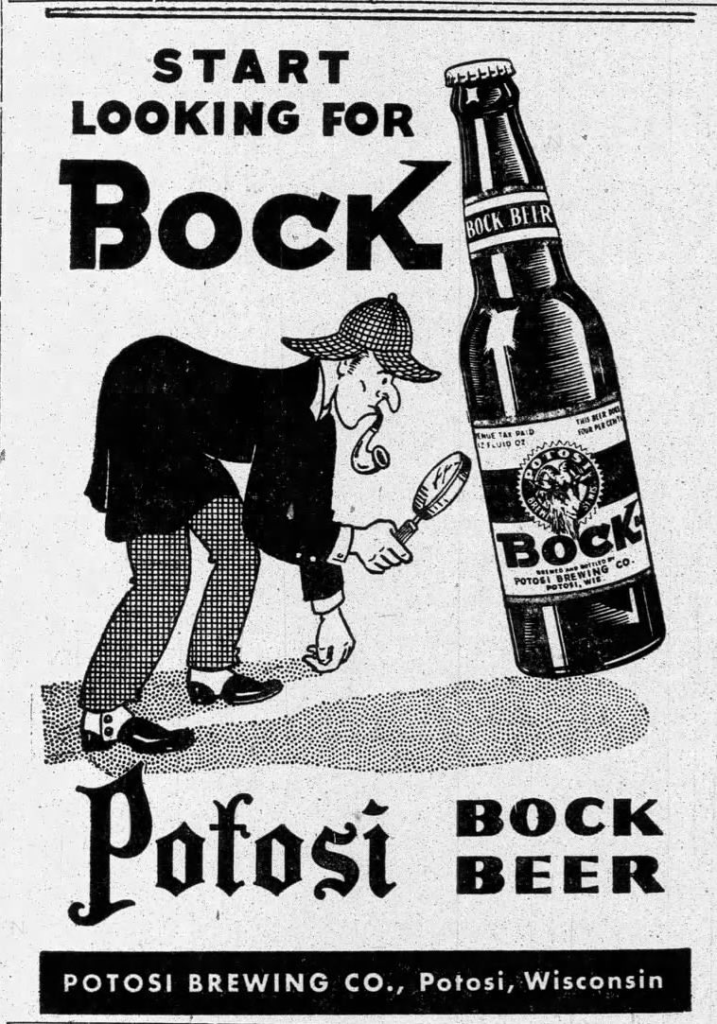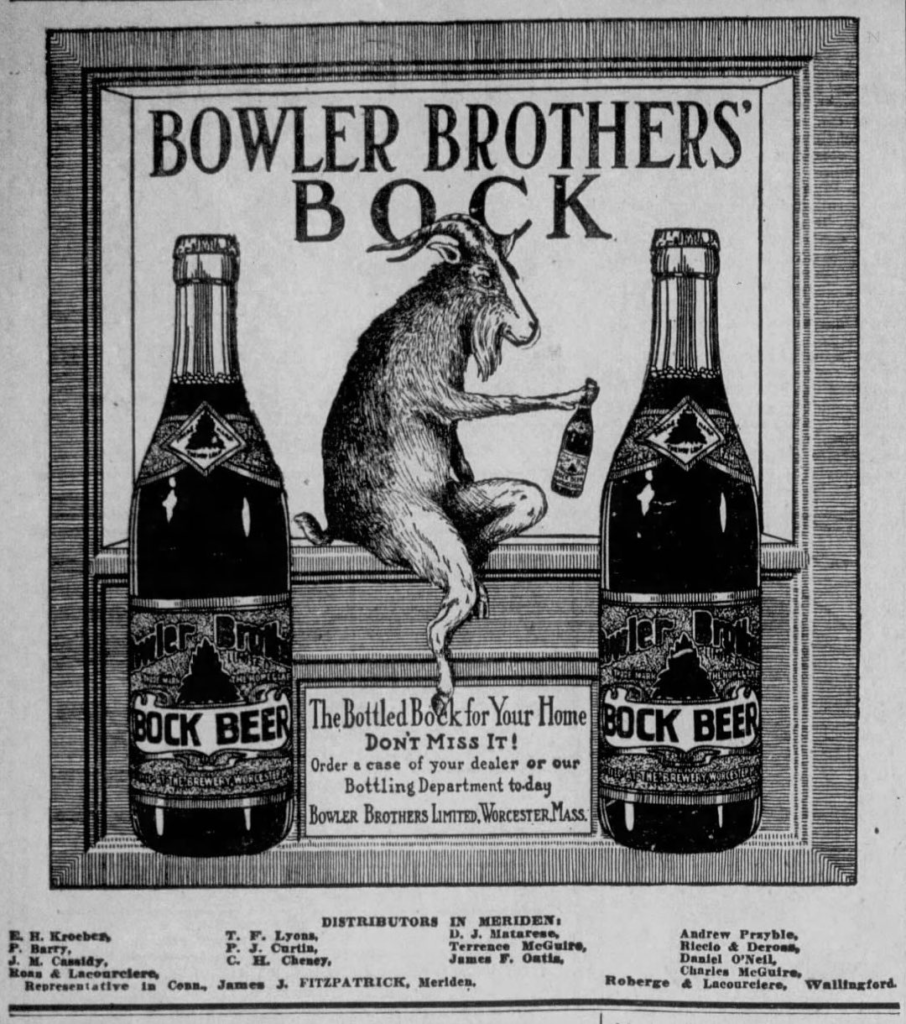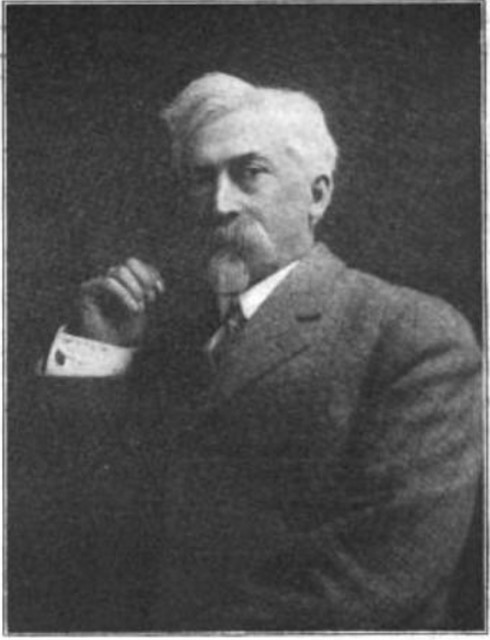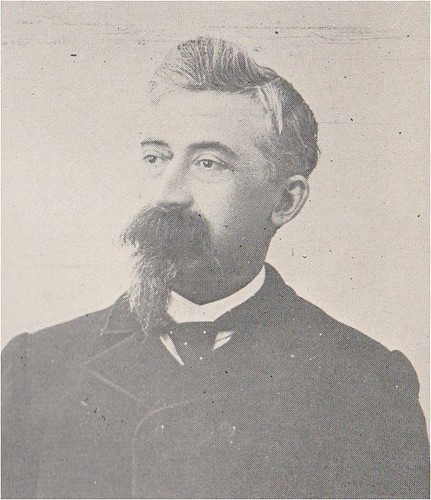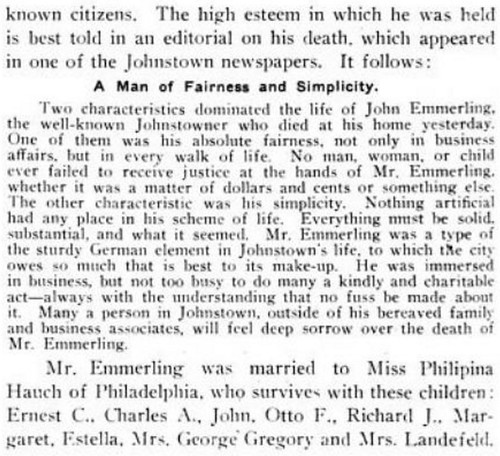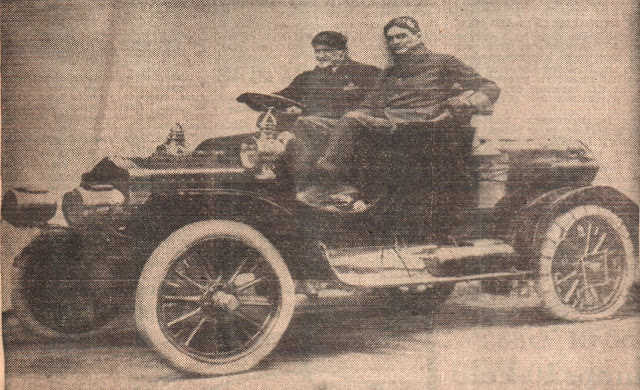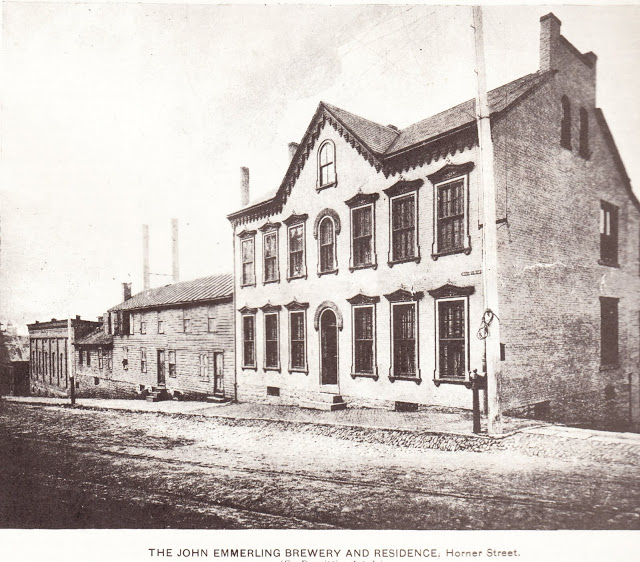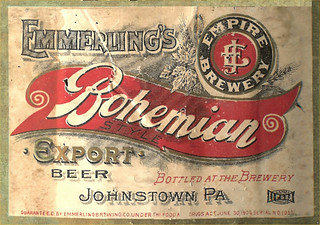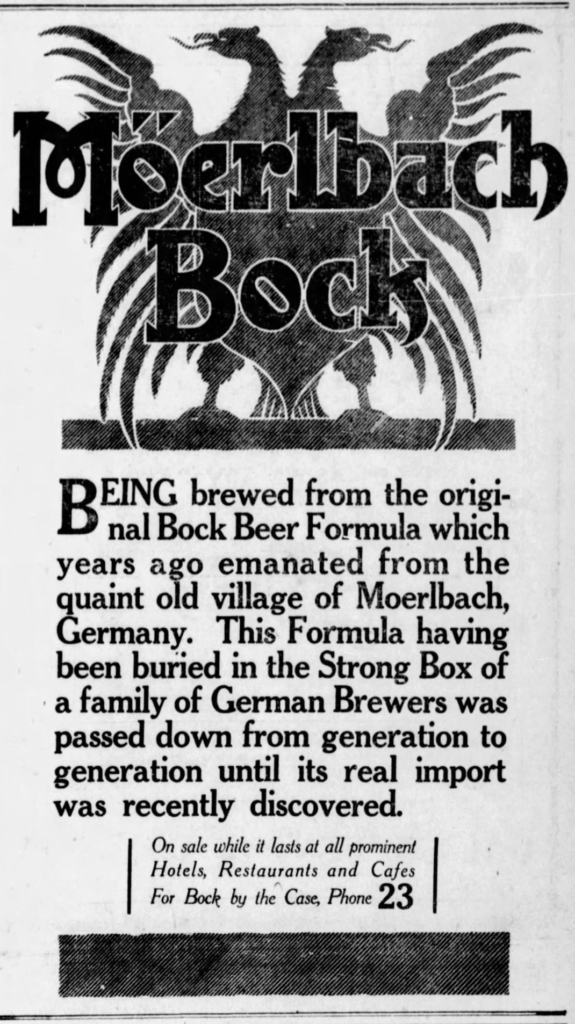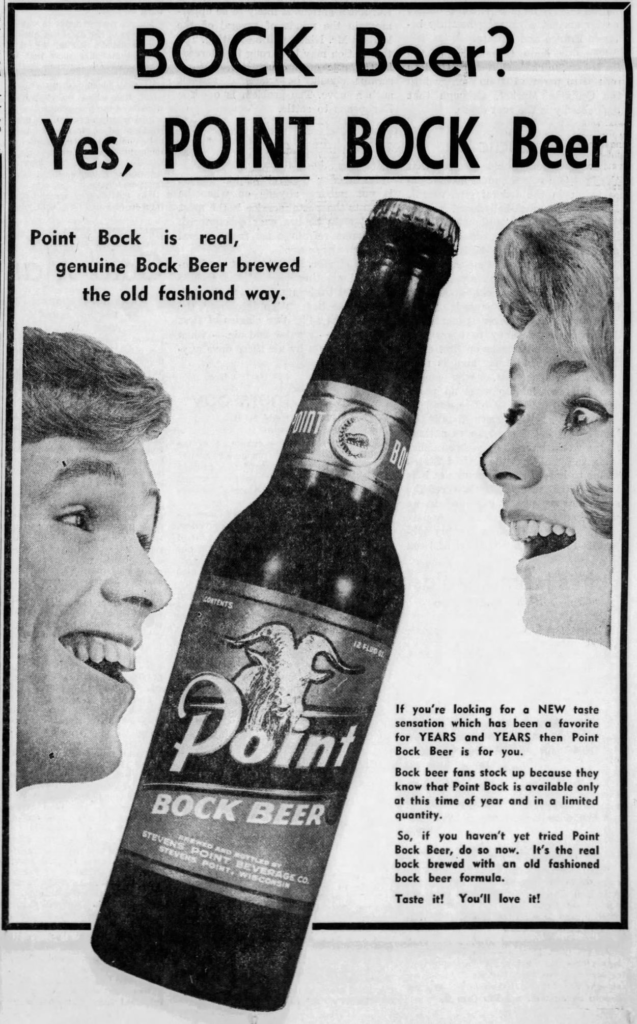
Today is the birthday of Frederick “Fritz” Gettelman (February 24, 1887-June 23, 1954). He was the son of Adam Gettelman, whose father-in-law, George Schweickhart, founded the Strohn & Reitzenstein Brewery in 1854, though the same year it became known as the Menomonee Brewery. When Schweickhart passed away in 1876, Adam Gettelman became the sole owner and renamed it the A. Gettelman Brewing Co. The Milwaukee brewery managed to remain open during prohibition and began making beer again in 1933. When Adam Gettelman dies in 1925, his other son William briefly led the brewery until 1929, when Fritz took over and continued to run the brewery until he passed away in 1954. It remained open after Fritz, though it struggled, and in 1961 was bought by rival Miller Brewing.
This account of Fritz Gettelman’s time at the breweries from the Encyclopedia of Milwaukee:
Gettelman survived Prohibition making “near beer” and through several different investments outside of brewing, like the West Side Savings Bank, the development and manufacturing of snow plows, gold-mining in the American southwest, and a sugar beet processing plant in Menomonee Falls. Gettelman returned to brewing in 1933, with Frederick “Fritz” Gettelman as president.
In order to counteract barrel shortages as brewing resumed, Frederick Gettelman personally designed the first practical steel keg in 1933, manufactured by the A.O. Smith Company of Milwaukee. Shortly after, he also consulted with the American and Continental Can Companies on how to apply his design to the development of what became known as the “keg-lined” beer can. In the late 1930s, he developed new glass-lined storage tanks, also manufactured by A.O. Smith, and a more efficient bottle-washing machine.
The company introduced a new eight-ounce beer bottle labeled “Fritzie” in 1946, inspired by heinzelmännchen, the house gnomes of German folklore. By 1952, Fritzie had evolved into a cartoon beer bottle with a rotund face and Tyrolean hat that was famously featured in different humorous scenes painted on the exterior walls of several Milwaukee taverns. Moreover, the company became an important pioneer in television advertising in Milwaukee, sponsoring televised wrestling matches in 1947, and World Series pre-game shows in 1949.
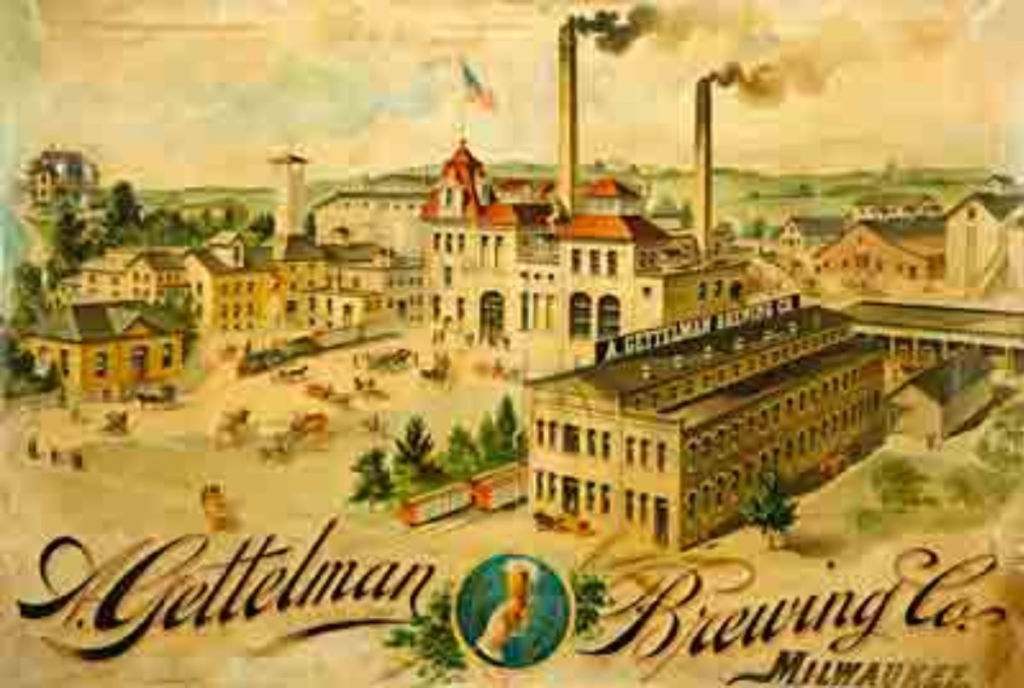
Gettelman Brewing also made major investments in modernizing and expanding their operations in the 1950s. They entered the Chicago, Boston, California, and other regional and national markets as they briefly opened in the wake of industry consolidation. Gettelman released a new, lighter “Milwaukee” brand beer in 1956, and began importing and distributing Tucher beer from Nuremburg, Germany in 1959—the first American brewer to establish such a relationship.
Nevertheless, the company was unable to continue competing with the national giants, and the Gettelman family sold the brewery to the neighboring Miller Brewing Company in 1961. The Gettelman plant and brand continued on with brothers Tom Gettelman and Frederick Gettelman, Jr. as plant managers until Miller formally merged the two operations in 1971.
Elements of the Gettelman brewery remain part of the Miller Brewing Company complex, and its Milwaukee’s Best brand lives on in Miller’s portfolio.
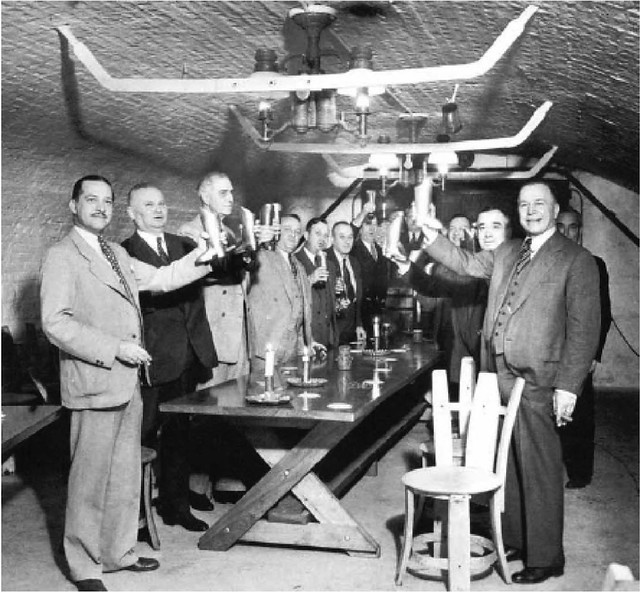

And this is from “A Century of Brewing, 1854-1954: The A. Gettelman Brewing Company,” a company brochure from 1954:
The A. Gettelman Brewing Company first began to show signs of the new post-prohibition prosperity in 1937 with construction of an addition to the old bottle-house. An 80 x 110 foot structure, the building was twice the size of the building it annexed. Cream-colored bricks salvaged from the old Gettelman mansion atop the hill overlooking the brewery went into the construction of its walls and the bottling equipment it housed was modernity itself. In fact, Fritz Gettelman had had a hand in the improvement of the bottle washer installed in the new bottle house. It was he who had dreamed up and perfected the idea of cleaning the bottles with high pressure steam and water. So efficient was the equipment in the ultra modern bottle shop that Gettelman was able to show figures proving that breakage on bottles of all makes and ages ran only .442 percent of total bottles handled.
In addition to the modern machinery on the ground floor the bottle shop boasted a battery of glass-lined storage tanks in the basement, an innovation which Fritz Gettelman had also helped engineer. During development of the revolutionary tanks, he had spent long hours at the A. 0. Smith plant subjecting experimental models to every conceivable torture to prove his idea that molten glass will stick to steel. How he did this in the face of skeptical college “enchineers” — as he called them — is another story, but the success he encountered is borne out by the fact that few progressive breweries today are without the big beer holders with the glazed walls.
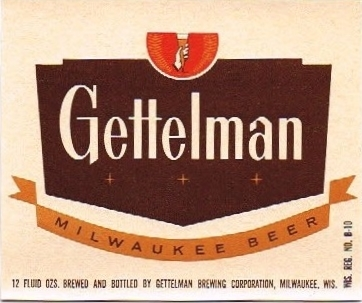
All this while the affairs of the brewery had been directed from the office building which lies between State street and the brewery proper. By 1948, however, it was becoming increasingly apparent that the expanding brewery would need corresponding office facilities. It was decided, therefore, that an old malt-house which had, for the last several years, served as a place for miscellaneous storage be made over into an office building. Part of the building had originally been the first Gettelman homestead, antedating even the mansion on the hill. From what had once been its living room emerged the present office reception room whose walls are panelled with the cypress of the old wooden beer storage tanks. From the rest of the building the architect’s skill and a lot of hard work wrought the present Gettelman offices. Fritz Gettelman went along with, and indeed inaugurated, most of the brewery’s advances, but he turned a deaf ear to any suggestion that he move his office to the newly renovated building. Moreover, he insisted that the second story room in which he had been born and from which had come many of his ideas on the humble brown butcher paper be left inviolate — and so it has been, to this day.
Modernization of brewery and office facilities was approved by every one connected with the business, but no one sanctioned them more heartily than the two Gettelman brothers, Fred, Jr., and Tom, sons of the energetic and imaginative Fritz. Actively entering the management affairs of the brewery in 1939 and 1941, respectively, the two younger Gettelmans not only welcomed the changes but were, in large measure, responsible for their execution. Interest of the brothers in increased production and administrative efficiency was not an overnight affair. The lives of both of them had revolved around the brewery almost since they had taken their first steps and they had a working knowledge of every facet of the business long before they emerged from brewers’ school as master brewers.

Here’s a fun fact about Fritz:
As Prohibition was beginning to end, the Gettelmen found that there was a wood shortage that would impact the creation of beer barrels. To solve this problem the first steel beer keg was invented by Fritz Gettelman.
And another:
The brewery suffered from the Milwaukee brewery strikes of 1953 and, like other breweries in Milwaukee, lost the trust of some local taverns as they began to buy their beer from other breweries. In the following years, Gettelman had to struggle along with the other smaller Milwaukee breweries for advertisement and sales, as the larger breweries were dominating the market in both areas. In 1961, as Miller was becoming ever more interested in purchasing more breweries, The Gettelman Brewing Company was purchased by Miller.
